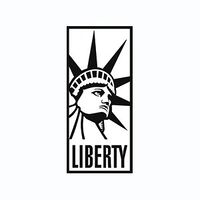Liberty Records

Relevance
The Liberty label was used to release 2012's Viva Hate remaster. Its iconography features on the front of the record.
Mentioned In
Discogs Information
Profile
Multinational label, originally founded 1955 in Hollywood, California. Also known as Liberty Records. Label code: LC 0249 / LC 00249 Use Liberty (3) for all unofficial/bootleg/counterfeit releases pretending to be this label. See Liberty Records, Inc., for the company.
History 1955: The independent American label was launched February 22, 1955, as subsidiary of Liberty Records, Inc., in Hollywood, California, by [url=/artist/352703]Simon (Si) Waronker[/url], who previously was music director for 20th Century Fox films. The idea for the record company came from Waronker's cousin, Herb Newman, who would found Era Records. Jack Ames (3) was vice president; Alvin Bennett (3) joined the company as VP and general manager on March 1, 1958, and was later president; Ted Keep (Theodore) was chief engineer. Simon's, Alvin's and Theodore's names were later immortalized in The Chipmunks — a release that brought the company back from the brink of bankruptcy in 1958. Julie London had the label's first big hit in 1955, and she became known as the "Liberty Girl." 1959: Liberty begins to distribute local labels through Liberty Records Sales Corp., soon acquiring and licensing several other independent American labels including Dolton Records (1963), Imperial (and subsidiaries Aladdin and Minit, 1964), Blue Note (1965), World Pacific (1965), Pacific Jazz (1965), and Blue Thumb Records. 1960: Liberty was taken public by Bennett to raise capital. 1963: Avent Electronics bought the company for $12 million, and Waronker retired. After two years of financial losses, Avnet sold the company back to Bennett for $8 million. 1967: Liberty Records Limited established in the UK and Liberty Records GmbH in Germany. 1968: Liberty was bought by Transamerica Corporation — the parent company of United Artists Records — for $38 million, on March 1, 1968. The union of Liberty and UA operated as a "paired" entity in various markets as "Liberty/UA." The companies at this time were Liberty/U.A. INC., Liberty/UA GmbH and Liberty/United Artists Records Ltd. (which may help to date versions). 1970: Bennett resigned, replaced by Michael Stewart. 1971: Liberty was folded into [url=/label/4898]United Artists[/url]. 1979: UA was taken over by EMI and the Liberty brand was revived in 1980. It traded as Liberty/United Records, Inc., for a short time. 1980: Start of the budget line with catalog number format LN 10XXX (see the bsnpubs link for dating). 1981: Liberty label relaunched in the UK through Liberty Records (UK) Ltd.
The Liberty brand currently exists as an EMI Group imprint around the world, used by various EMI operating companies for a variety of acts.
International Belgium: Originally released through London Records, represented by Fonior. Represented by S.A. Gramophone N.V. since circa 1962. Netherlands: Originally released through London Records, represented by Philips Phonografische Industrie. Represented by N.V. Bovema (later B.V. Bovema) since circa 1962. Germany: Liberty Records GmbH (circa 1967) UK: Liberty Records Limited (circa 1967); Liberty Records (UK) Ltd. (circa 1980s)
Identification (U.S. releases)
Label dating for 45 rpm releases 55001 through 55270 (1955–1960): green labels with silver print. 55271 through 56218 (1960–1970): multi-color label.
Producers Between 1959 and 1962, Liberty was known to credit producers with their initials on the labels. The initials can appear as a suffix to the label matrix or in or out of parentheses on other parts of the label. Upper- and lowercase initials are known to exist.
Known initials: FS – Felix Slatkin JA – Joe Allison PM – unidentified SG – Snuff Garrett SW – Si Waronker
External Links
- https://www.discogs.com/label/13531-Liberty
- https://www.bsnpubs.com/liberty/liberty.html
- https://www.friktech.com/labels/LibertyAlbums1.pdf
- https://www.jerryosborne.com/firstpressings.pdf
Wikipedia Information
 |
Liberty Records was a record label founded in the United States by chairman Simon Waronker in 1955 with Alvin Bennett as president and Theodore Keep as chief engineer. It was reactivated in 2001 in the United Kingdom and had two previous revivals.